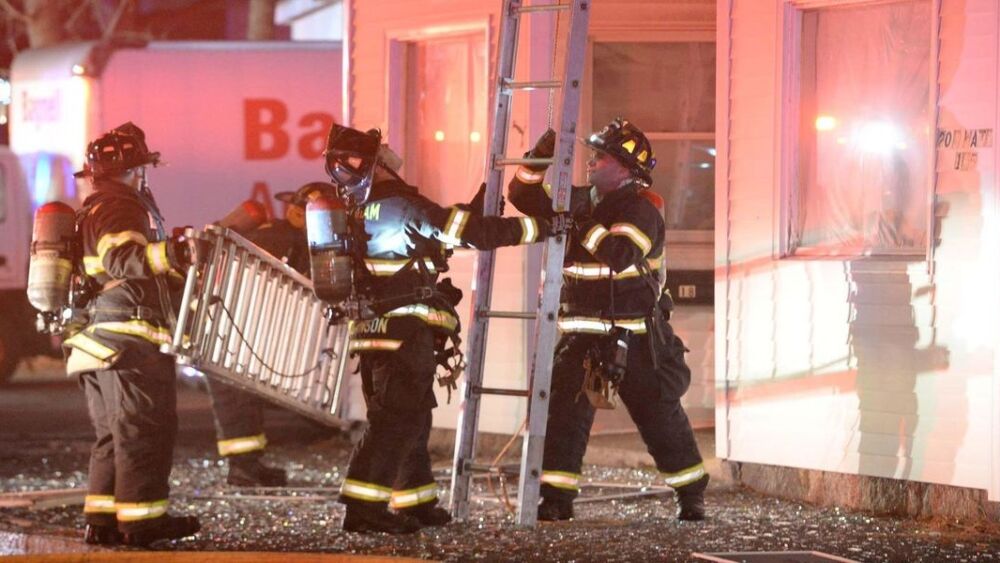By design, the world is conditioned to recognize achievement. You win the race. You’re first in your class. You make the most money. The fire service tends to follow this pattern of recognizing achievement and excellence.
Some people are born with natural gifts and talents – the biggest, the strongest, the smartest. Others must work hard to develop these abilities. Who among these groups does better in the long run? It depends.
Recognizing input as well as output
In any fire service recruit class, there are those that immediately shine and those that must work hard. Some in the class may seem naturally suited to the job: they’re big and strong, they have prior experience, they come from fire service families. Others may have to overcome obstacles to excel. Research on how these two groups perform in different circumstances provides some surprising data about how people manage challenges.
In her book “Grit: The Power of Passion and Perseverance,” author Angela Duckworth talks about her research on the success rates of new candidates at West Point during an indoctrination week known as “Beast.” Those with the highest Whole Candidate score upon admission to the academy – in other words, the recruits deemed most qualified and innately talented – did not do the best during this challenging process. Instead, success was determined more by what Duckworth calls grit.
Studies done with both children and adults show that people who are praised and rewarded for innate ability tend to set performance goals for themselves. They expect to win, to get the top score, and this expectation can become part of a personal identity. In choosing performance goals, they may deliberately select problems or challenges that they know they can excel with, so they can always maintain that identity and meet expectations.
On the other hand, those who are recognized for their effort as well as results often continue to challenge themselves as they set goals that are more about learning than about specific performance.
Teamwork efforts are praise-worthy in emergency services
Achievement should be recognized; it’s an easy measurement of output and success. But don’t only recognize that aspect of excellence. Achievement in the fire service should be recognized within the context of teamwork. Assisting someone else’s success is equally important to achieving personal recognition.
So instead of saying “Good save” or “Great stop on that fire,” an officer can say, “That patient survived because you never gave up on her,” or “Great teamwork in making the stop on that fire.”
This difference may seem small and inconsequential, but it can have larger impacts. Only recognizing successful outcomes negates the nature of the emergency services and can set people up for unreasonable regrets and self-doubt. Firefighters did not cause the problem, and they can’t always fix it. It was on fire when they got there. Every medical call won’t be a save. Firefighters must learn to recognize that sometimes their best efforts are all they can do.
How to implement a team-oriented learning model
How can you steer people from individual recognition through performance goals to a more team-oriented learning model of success? There are three changes leaders can make that will impact members the most:
- Tackle a new role. Require – don’t just encourage – individuals fill diverse roles both within their own work teams and the organization. There are always going to be people who step up early, who are comfortable being more assertive and who volunteer to take a leadership role. They may be good at these roles. But they also need to understand that this is not the only way to be an important part of any team.
- Rotate roles. Especially when training, be sure to rotate people through different roles. Watch carefully as different people handle similar challenges. Recognize not just achievement, but also collaboration, coaching, effort and resilience. Debrief training exercises along the lines of all these factors. Mixing up roles can happen in day-to-day station life and duties as well as in training. Keep things fresh. Don’t let people get complacent.
- Factor effort and input into annual assessments. Personnel evaluation instruments can be modified to include factors beyond successful outcomes. Coaching that recognizes effort and improvement is likely to encourage people to keep working harder to achieve their goals.
Teaching leadership new tricks
Most leaders know that effort and perseverance are important, but they may not be actively recognizing these things. Performance goals are easy to measure. Learning goals are more subtle but are equally or more important for the success of the team.













